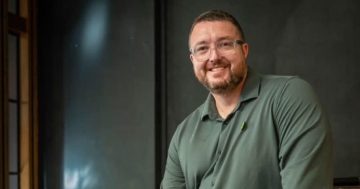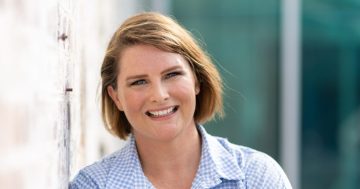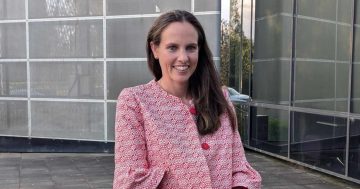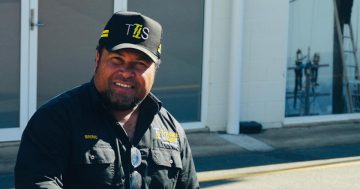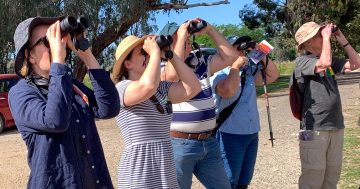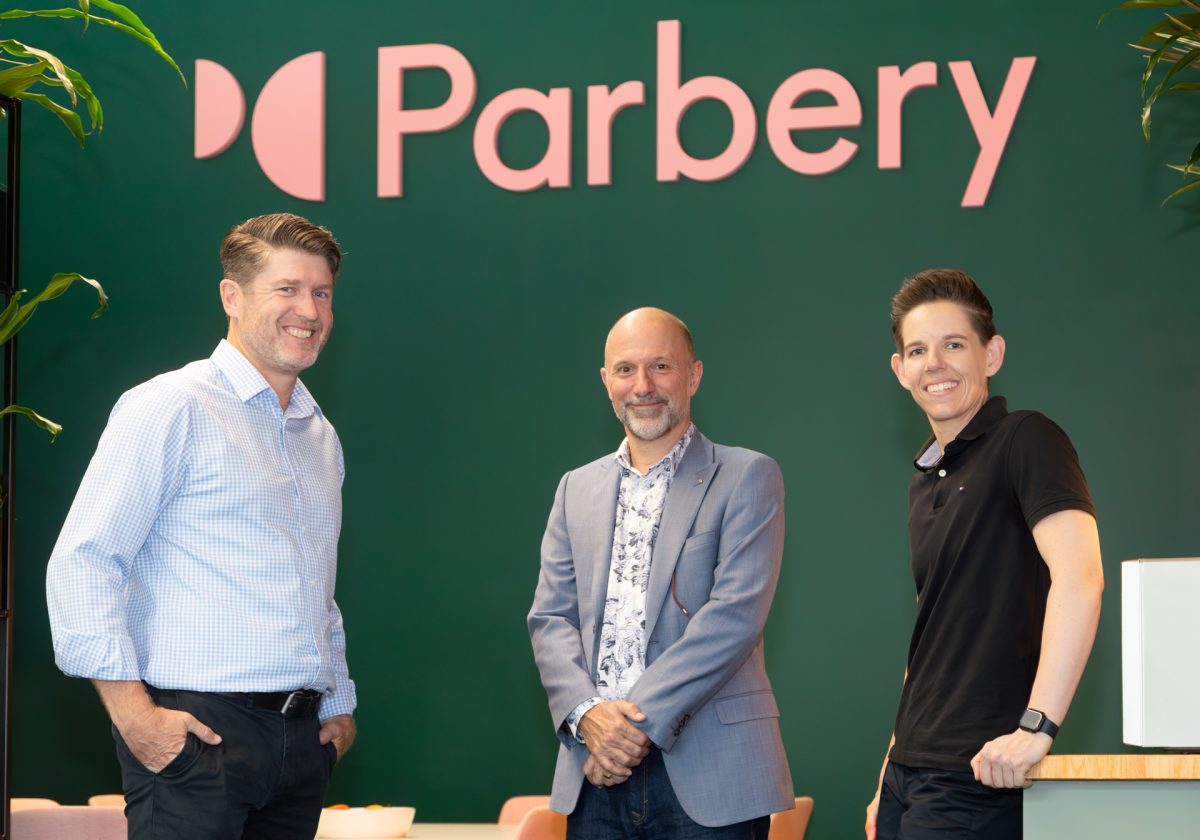
Brendan Egan, Brad Shrimpton and Beth Garwood have set a plan in motion that aims to reduce mental health stigma and promote ‘mentally healthy’ environments at work. Photo: Michelle Kroll.
Everyone knows what a bad day at the office is like. But when the struggle doesn’t stop and a ‘bad day’ turns into something more challenging, what can employers do to help?
For more than 25 years, Mental Illness Education ACT (MIEACT) has delivered a range of education and awareness programs to schools, community groups and workplaces.
CEO Brad Shrimpton says the more workplaces speak openly about mental ill health, the better prepared they are to combat stress, prevent psychosocial hazards and avoid staff burnout.
“Mental health is such a huge issue across Australia and on a global level,” he says.
“By opening up a genuine, honest conversation, we can identify issues at work that might contribute to struggle and promote help-seeking for anyone who needs it.
“Burnout obviously isn’t the only risk for people living with mental illness while working, but it is an example that shows just how damaging mentally unsafe environments can be.”
Uniquely, most MIEACT programs are presented by volunteers who have experience with mental ill health. They share their stories not only to raise awareness but to let others know they are not alone.
Volunteer engagement and development manager Beth Garwood joined MIEACT after severe burnout arose from her PTSD, triggering bipolar disorder and effectively ending her career in the police force.
“I moved to Canberra to study indigenous policy and development, and while looking for a way to get involved in the community here, I came across MIEACT,” she says.
“From day one, I had the opportunity to take what the policing world said made me weak and broken and turn it into something empowering for myself and everyone who can relate to my story.
“I want to show others that even in the face of great challenge, there is hope for recovery. It might look different for each person, but it’s always possible.”
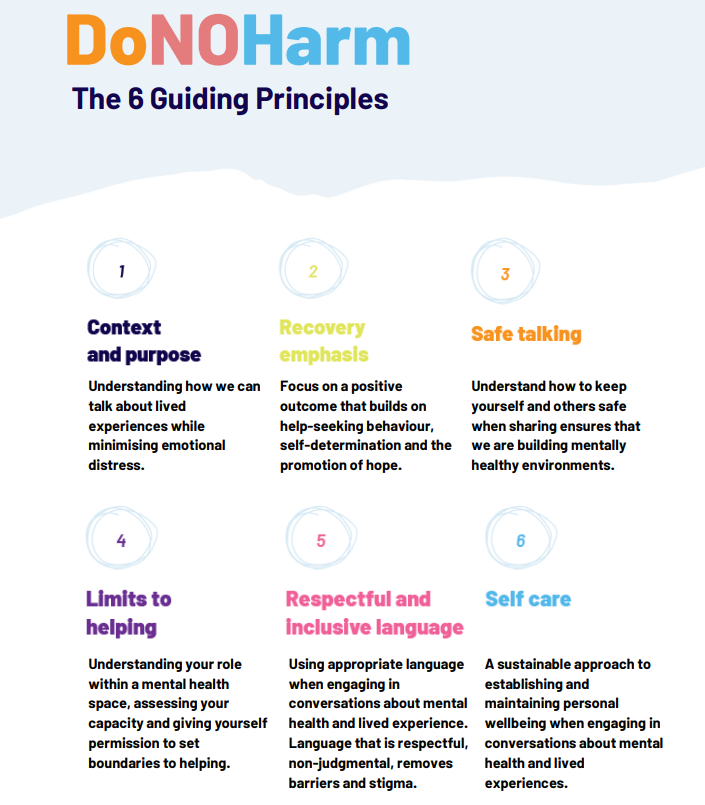
DoNOHarm has been picked up by institutions across the country, including the Department of Health and Aged Care, Department of Education, and national mental health provider STRIDE. Image: MIEACT.
Beth empowers MIEACT’s 20-plus volunteer educators to share their personal stories with mental ill health across the region, using the DoNOHarm framework to do so safely.
“DoNOHarm gives people the tools to safely, effectively and sustainably communicate their lived experience,” Beth says.
“It started as a framework for our volunteers but has been adopted across the country by many different organisations. Some are on the ‘front line’ in emergency services, defence and healthcare, others are just regular corporates who support mentally healthy workplaces.”
Beth says lived experiences are powerful tools when shared due to their nature as stories that are real, honest and true.
“Our feel-good moment is when people say how important it was for them to hear that story because they realised they were not alone.
“Even though there’s so much more awareness and acceptance of mental ill health now than there has been in the past, we still have a long way to go.”
The MIEACT team uses revenue from workplace programs to support their free mental health awareness offering for schools across the ACT.
Moving forward, the team also hopes to engage with more local businesses as multi-year donors, so they can plan ahead more effectively, diversify where their funding comes from and deliver more programs that positively impact Canberra’s community.
Helping the not-for-profit on its way is Parbery Consulting.
Head of community and for-purpose, Brendan Egan, has been instrumental in developing Parbery’s for-purpose offering, which develops relationships with organisations like MIEACT to work towards better social outcomes.
“MIEACT’s work is obviously of great value, so supporting the development and delivery of flagship programs was a no-brainer,” he says.
“Though Parbery is expanding, we don’t want to lose our connection with local community. MIEACT keeps us linked to what’s happening in Canberra and highlights where we could be of help.
“It’s a testament to our belief that businesses and not for profits can work together towards shared goals. Small charities can be apprehensive about this sort of relationship and how it could work, but actually, it can be an amazing experience for both sides.”
If your workplace could benefit from DoNOHarm or a similar mental health education program, contact MIEACT on 02 6257 1195.
Original Article published by Morgan Kenyon on Riotact.







